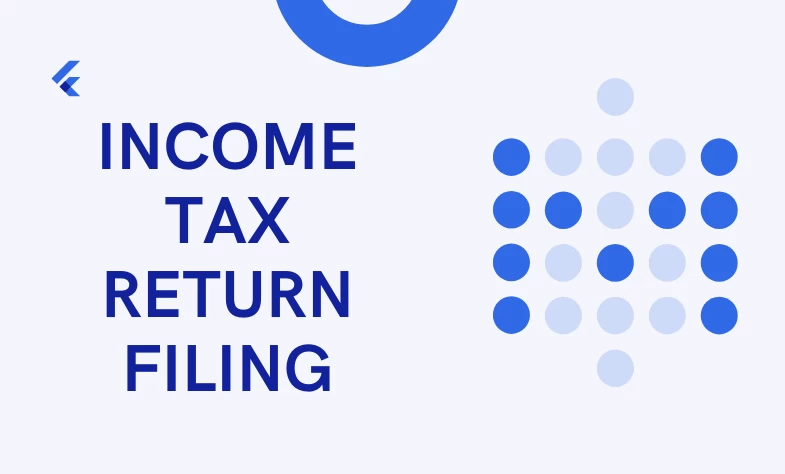The Finance Act, which is passed annually by the Parliament, provides information on the applicable rates of Income-tax and corporate taxes. Additionally, individuals can utilize the free online tax calculator found at www.incometaxindia.gov.in to determine their tax liability.
Brief Tax Rate Charts for ready reference is given below:
Tax Rates
1. In case of an Individual (resident or non-resident) or HUF or Association of Person or Body of Individual or any other artificial juridical person
|
Individuals
|
|
(Other than senior and super senior citizen)
|
|
Net Income Range
|
Rate of Income-tax
|
|
Assessment Year 2023-24
|
Assessment Year 2022-23
|
|
Up to Rs. 2,50,000
|
-
|
-
|
|
Rs. 2,50,000 to Rs. 5,00,000
|
5%
|
5%
|
|
Rs. 5,00,000 to Rs. 10,00,000
|
20%
|
20%
|
|
Above Rs. 10,00,000
|
30%
|
30%
|
|
Senior Citizen
|
|
(who is 60 years or more at any time during the previous year)
|
|
Net Income Range
|
Rate of Income-tax
|
|
Assessment Year 2023-24
|
Assessment Year 2022-23
|
|
Up to Rs. 3,00,000
|
-
|
-
|
|
Rs. 3,00,000 to Rs. 5,00,000
|
5%
|
5%
|
|
Rs. 5,00,000 to Rs. 10,00,000
|
20%
|
20%
|
|
Above Rs. 10,00,000
|
30%
|
30%
|
|
Super Senior Citizen
|
|
(who is 80 years or more at any time during the previous year)
|
|
Net Income Range
|
Rate of Income-tax
|
|
Assessment Year 2023-24
|
Assessment Year 2022-23
|
|
Up to Rs. 5,00,000
|
-
|
-
|
|
Rs. 5,00,000 to Rs. 10,00,000
|
20%
|
20%
|
|
Above Rs. 10,00,000
|
30%
|
30%
|
|
Hindu Undivided Family (Including AOP, BOI and Artificial Juridical Person)
|
|
Net Income Range
|
Rate of Income-tax
|
|
Assessment Year 2023-24
|
Assessment Year 2022-23
|
|
Up to Rs. 2,50,000
|
-
|
-
|
|
Rs. 2,50,000 to Rs. 5,00,000
|
5%
|
5%
|
|
Rs. 5,00,000 to Rs. 10,00,000
|
20%
|
20%
|
|
Above Rs. 10,00,000
|
30%
|
30%
|
Add:
a. Surcharge : Surcharge is levied on the amount of income-tax at following rates if total income of an assessee exceeds specified limits:-
|
Rate of Surcharge
|
|
Assessment Year 2023-24
|
Assessment Year 2022-23
|
|
Range of Income
|
Range of Income
|
|
Rs. 50 Lakhs to Rs. 1 Crore
|
Rs. 1 Crore to Rs. 2 Crores
|
Rs. 2 Crores to Rs. 5 Crores
|
Rs. 5 crores to Rs. 10 Crores
|
Exceeding Rs. 10 Crores
|
Rs. 50 Lakhs to Rs. 1 Crore
|
Rs. 1 Crore to Rs. 2 Crores
|
Rs. 2 Crores to Rs. 5 Crores
|
Rs. 5 crores to Rs. 10 Crores
|
Exceeding Rs. 10 Crores
|
|
10%
|
15%
|
25%
|
37%
|
37%
|
10%
|
15%
|
25%
|
37%
|
37%
|
Note:
(1) The enhanced surcharge of 25% & 37%, as the case may be, is not levied, from income chargeable to tax under sections 111A, 112A and 115AD. Hence, the maximum rate of surcharge on tax payable on such incomes shall be 15%.
(2) From Assessment Year 2023-24 onwards:
o The maximum rate of surcharge on tax payable on dividend income or capital gain referred to in Section 112, shall be 15%.
o The surcharge rate for AOP with all members as a company, shall be capped at 15%.
However, marginal relief is available from surcharge in following manner-
i. in case where net income exceeds Rs. 50 lakh but doesn't exceed Rs. 1 Crore, the amount payable as income tax and surcharge shall not exceed the total amount payable as income tax on total income of Rs 50 Lakh by more than the amount of income that exceeds Rs 50 Lakhs.
ii. in case where net income exceeds Rs. 1 crore but doesn't exceed Rs. 2 crore, marginal relief shall be available from surcharge in such a manner that the amount payable as income tax and surcharge shall not exceed the total amount payable as income-tax on total income of Rs. 1 crore by more than the amount of income that exceeds Rs. 1 crore.
iii. in case where net income exceeds Rs. 2 crore but doesn't exceed Rs. 5 crore, marginal relief shall be available from surcharge in such a manner that the amount payable as income tax and surcharge shall not exceed the total amount payable as income-tax on total income of Rs. 2 crore by more than the amount of income that exceeds Rs. 2 crore.
iv. in case where net income exceeds Rs. 5 crore, marginal relief shall be available from surcharge in such a manner that the amount payable as income tax and surcharge shall not exceed the total amount payable as income-tax on total income of Rs. 5 crore by more than the amount of income that exceeds Rs. 5 crore.
b. Health and Education Cess : Health and Education Cess is levied at the rate of 4% on the amount of income-tax plus surcharge.
Note: A resident individual (whose net income does not exceed Rs. 5,00,000) can avail rebate under section 87A. It is deductible from income-tax before calculating education cess. The amount of rebate is 100 per cent of income-tax or Rs. 12,500, whichever is less.
1.1. Special tax Rate for Individual and HUFs
The Finance Act, 2020, has provided an option to Individuals and HUF for payment of taxes at the following reduced rates from Assessment Year 2021-22 and onwards:
|
Total Income (Rs)
|
Rate
|
|
Up to 2,50,000
|
Nil
|
|
From 2,50,001 to 5,00,000
|
5%
|
|
From 5,00,001 to 7,50,000
|
10%
|
|
From 7,50,001 to 10,00,000
|
15%
|
|
From 10,00,001 to 12,50,000
|
20%
|
|
From 12,50,001 to 15,00,000
|
25%
|
|
Above 15,00,000
|
30%
|
Add:
a. Surcharge : Surcharge is levied on the amount of income-tax at following rates if total income of an assessee exceeds specified limits:-
|
Range of Income
|
|
Rs. 50 Lakhs to Rs. 1 Crore
|
Rs. 1 Crore to Rs. 2 Crores
|
Rs. 2 Crores to Rs. 5 Crores
|
Rs. 5 crores to Rs. 10 Crores
|
Exceeding Rs. 10 Crores
|
|
10%
|
15%
|
25%
|
37%
|
37%
|
Note: The enhanced surcharge of 25% & 37%, as the case may be, is not levied, from income chargeable to tax under sections 111A, 112, 112A and 115AD. Hence, the maximum rate of surcharge on tax payable on such incomes shall be 15%.
However, marginal relief is available from surcharge in following manner-
i. in case where net income exceeds Rs. 50 lakh but doesn't exceed Rs. 1 Crore, the amount payable as income tax and surcharge shall not exceed the total amount payable as income tax on total income of Rs 50 Lakh by more than the amount of income that exceeds Rs 50 Lakhs.
ii. in case where net income exceeds Rs. 1 crore but doesn't exceed Rs. 2 crore, marginal relief shall be available from surcharge in such a manner that the amount payable as income tax and surcharge shall not exceed the total amount payable as income-tax on total income of Rs. 1 crore by more than the amount of income that exceeds Rs. 1 crore.
iii. in case where net income exceeds Rs. 2 crore but doesn't exceed Rs. 5 crore, marginal relief shall be available from surcharge in such a manner that the amount payable as income tax and surcharge shall not exceed the total amount payable as income-tax on total income of Rs. 2 crore by more than the amount of income that exceeds Rs. 2 crore.
iv. in case where net income exceeds Rs. 5 crore, marginal relief shall be available from surcharge in such a manner that the amount payable as income tax and surcharge shall not exceed the total amount payable as income-tax on total income of Rs. 5 crore by more than the amount of income that exceeds Rs. 5 crore.
b. Health and Education Cess : Health and Education Cess is levied at the rate of 4% on the amount of income-tax plus surcharge.
Note 1: A resident individual (whose net income does not exceed Rs. 5,00,000) can avail rebate under section 87A. It is deductible from income-tax before calculating education cess. The amount of rebate is 100 per cent of income-tax or Rs. 12,500, whichever is less.
Note 2: The option to pay tax at lower rates shall be available only if the total income of assessee is computed without claiming specified exemptions or deductions:
2. Partnership Firm
For the Assessment Year 2023-24, a partnership firm (including LLP) is taxable at 30%.
Add:
(a) Surcharge : The amount of income-tax shall be increased by a surcharge at the rate of 12% of such tax, where total income exceeds one crore rupees. However, the surcharge shall be subject to marginal relief (where income exceeds one crore rupees, the total amount payable as income-tax and surcharge shall not exceed total amount payable as income-tax on total income of one crore rupees by more than the amount of income that exceeds one crore rupees).
(b) Health and Education Cess : The amount of income-tax and the applicable surcharge, shall be further increased by health and education cess calculated at the rate of four percent of such income-tax and surcharge
3. Local Authority
For the Assessment Year 2022-23 & 2023-24, a local authority is taxable at 30%.
Add:
(a) Surcharge : The amount of income-tax shall be increased by a surcharge at the rate of 12% of such tax, where total income exceeds one crore rupees. However, the surcharge shall be subject to marginal relief (where income exceeds one crore rupees, the total amount payable as income-tax and surcharge shall not exceed total amount payable as income-tax on total income of one crore rupees by more than the amount of income that exceeds one crore rupees).
(b) Health and Education Cess : The amount of income-tax and the applicable surcharge, shall be further increased by health and education cess calculated at the rate of four percent of such income-tax and surcharge.
4. Domestic Company
Income-tax rates applicable in case of domestic companies for assessment year 2022-23 and 2023-24 are as follows:
|
Domestic Company
|
|
|
Assessment Year 2022-23
|
Assessment Year 2023-24
|
|
Where its total turnover or gross receipt during the previous year 2019-20 does not exceed Rs. 400 crore
|
25%
|
NA
|
|
Where its total turnover or gross receipt during the previous year 2020-21 does not exceed Rs. 400 crore
|
NA
|
25%
|
|
Any other domestic company
|
30%
|
30%
|
Add:
(a) Surcharge : The amount of income-tax shall be increased by a surcharge at the rate of 7% of such tax, where total income exceeds one crore rupees but not exceeding ten crore rupees and at the rate of 12% of such tax, where total income exceeds ten crore rupees. The surcharge shall be subject to marginal relief, which shall be as under:
(i) Where income exceeds Rs. 1 crore but not exceeding Rs. 10 crore, the total amount payable as income-tax and surcharge shall not exceed total amount payable as income-tax on total income of Rs. 1 crore by more than the amount of income that exceeds Rs. 1 crore.
(ii) Where income exceeds Rs. 10 crore, the total amount payable as income-tax and surcharge shall not exceed total amount payable as income-tax on total income of Rs. 10 crore by more than the amount of income that exceeds Rs. 10 crore
(b) Health and Education Cess : The amount of income-tax and the applicable surcharge, shall be further increased by health and education cess calculated at the rate of four percent of such income-tax and surcharge.
4.1. Special Tax rates applicable to a domestic company
The special Income-tax rates applicable in case of domestic companies for assessment year 2022-23 and 2023-24 are as follows:
|
Domestic Company
|
|
|
Assessment Year 2022-23
|
Assessment Year 2023-24
|
|
Where it opted for Section 115BA
|
25%
|
25%
|
|
Where it opted for Section 115BAA
|
22%
|
22%
|
|
Where it opted for Section 115BAB
|
15%
|
15%
|
Surcharge : The rate of surcharge in case of a company opting for taxability under Section 115BAA or Section 115BAB shall be flat 10% irrespective of amount of total income.
Health and Education Cess: The amount of income-tax and the applicable surcharge, shall be further increased by health and education cess calculated at the rate of four percent of such income-tax and surcharge.
MAT : The domestic company who has opted for special taxation regime under Section 115BAA & 115BAB is exempted from provision of MAT. However, no exemption is available in case where section 115BA has been opted.
In that case, the provisions of Minimum Alternate Tax (MAT) applies, tax payable cannot be less than 15% (+HEC) of "Book profit" computed as per section 115JB. However, MAT is levied at the rate of 9% (plus surcharge and cess as applicable) in case of a company, being a unit of an International Financial Services Centre and deriving its income solely in convertible foreign exchange. For provisions relating to MAT refer tutorial on "MAT/AMT" in tutorial section.
5. Foreign Company
Assessment Year 2022-23 and Assessment Year 2023-24
|
Nature of Income
|
Tax Rate
|
|
Royalty received from Government or an Indian concern in pursuance of an agreement made with the Indian concern after March 31, 1961, but before April 1, 1976, or fees for rendering technical services in pursuance of an agreement made after February 29, 1964 but before April 1, 1976 and where such agreement has, in either case, been approved by the Central Government
|
50%
|
|
Any other income
|
40%
|
Add:
(a) Surcharge: The amount of income-tax shall be increased by a surcharge at the rate of 2% of such tax, where total income exceeds one crore rupees but not exceeding ten crore rupees and at the rate of 5% of such tax, where total income exceeds ten crore rupees. However, the surcharge shall be subject to marginal relief, which shall be as under:
(i) Where income exceeds one crore rupees but not exceeding ten crore rupees, the total amount payable as income-tax and surcharge shall not exceed total amount payable as income-tax on total income of one crore rupees by more than the amount of income that exceeds one crore rupees.
(ii) Where income exceeds ten crore rupees, the total amount payable as income-tax and surcharge shall not exceed total amount payable as income-tax on total income of ten crore rupees by more than the amount of income that exceeds ten crore rupees.
(b) Health and Education Cess : The amount of income-tax and the applicable surcharge, shall be further increased by health and education cess calculated at the rate of four percent of such income-tax and surcharge.
6. Co-operative Society
Assessment Year 2022-23 and Assessment Year 2023-24
|
Taxable income
|
Tax Rate
|
|
Up to Rs. 10,000
|
10%
|
|
Rs. 10,000 to Rs. 20,000
|
20%
|
|
Above Rs. 20,000
|
30%
|
Add:
(a) Surcharge: The amount of income-tax shall be increased by a surcharge at the rate of 12% of such tax, where total income exceeds one crore rupees. However, the surcharge shall be subject to marginal relief (where income exceeds one crore rupees, the total amount payable as income-tax and surcharge shall not exceed total amount payable as income-tax on total income of one crore rupees by more than the amount of income that exceeds one crore rupees).
Note: From Assessment Year 2023-24 onwards, the rate of surcharge in the case of co-operative societies having income between 1 crore to 10 crores is reduced from 12% to 7%.
(b) Health and Education Cess: The amount of income-tax and the applicable surcharge, shall be further increased by health and education cess calculated at the rate of four percent of such income-tax and surcharge.
6.1. Special tax rates applicable to a Co-operative societies
|
Taxable income
|
Tax Rate
|
|
Any income
|
22%
|
Note:
The Finance Act, 2020 has inserted a new Section 115BAD in Income-tax Act to provide an option to the co-operative societies to get taxed at the rate of 22% plus 10% surcharge and 4% cess. The resident co-operative societies have an option to opt for taxation under newly Section 115BAD of the Act w.e.f. Assessment Year 2021-22. The option once exercised under this section cannot be subsequently withdrawn for the same or any other previous year.
If the new regime of Section 115BAD is opted by a co-operative society, its income shall be computed without providing for specified exemption, deduction or incentive available under the Act. The societies opting for this section have been kept out of the purview of Alternate Minimum Tax (AMT). Further, the provision relating to computation, carry forward and set-off of AMT credit shall not apply to these assessees.
The option to pay tax at lower rates shall be available only if the total income of co-operative society is computed without claiming specified exemptions or deductions
[As amended by Finance Act, 2022]







